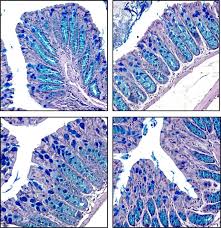Recently, scientists at Trinity College Dublin have identified for the first time a family of proteins that may be directly linked to lower blood sugar levels in obese patients with type 2 diabetes. The results of this study show that patients with type 2 diabetes who have higher levels of IL-36 cytokines tend to have lower blood glucose levels, suggesting that these proteins (IL-36) may better control blood glucose levels…
Diabetes
Sensing Proteins Prevents Obesity and Diabetes Found
Recently, researchers at the University of Melbourne determined an internal “sensor” which can help fight by indicating cells to burn their fat. This finding might play an important role in the treatment for obesity and metabolic diseases (including type 2 diabetes). In this study, the researchers found that when the increased dietary energy (food) intake triggers cells to become “unstable”, a protein called NLRP1 is opened. Activate this protein…
Pesticides Linked to Increased Diabetes Risk
Previously, it has been revealed that the use of certain pesticides at home might increase the risk of childhood cancer. However, a recent study claimed that pesticides are also linked to increased risk of diabetes. The report said that long-term exposure to pesticides can significantly increase the risk of type 2 diabetes (60 percent). “Our study suggests that pesticides can significantly increase the risk of developing type 2 diabetes, even…
